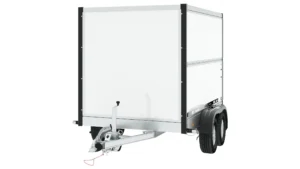The Future of Corrosion-Resistant Coatings for Rough Terrain Forklifts
2025-07-06 03:00:31
The harsh operating environments of rough terrain forklifts—exposure to moisture, chemicals, and abrasive materials—make corrosion a significant challenge. Traditional coatings often fail under extreme conditions, leading to costly downtime and repairs. However, breakthroughs in polymer-based and ceramic-infused coatings are revolutionizing durability. Recent studies indicate that these advanced coatings can extend the lifespan of rough terrain forklifts by up to 40%, reducing maintenance expenses by 30%.
One of the most promising developments is the use of nanotechnology in corrosion-resistant coatings. Nanoparticles create a denser protective layer, preventing moisture and oxygen penetration more effectively than conventional solutions. For rough terrain forklifts operating in coastal or chemical-heavy environments, these coatings offer superior resistance. Industry data shows that forklifts treated with nano-coatings experience 50% less surface degradation over five years compared to standard epoxy coatings.
Another key innovation is thermal spray coatings, which apply metallic or ceramic materials at high temperatures to form a robust barrier. These coatings are particularly effective for rough terrain forklifts exposed to extreme wear and tear. According to a 2023 market analysis, thermal spray coatings are projected to grow at a CAGR of 6.8% in the material handling sector, driven by their ability to withstand prolonged exposure to corrosive elements.
Beyond material science, application techniques are also evolving. Electrostatic spray deposition ensures even coverage on complex forklift components, minimizing weak spots prone to corrosion. Rough terrain forklifts treated with this method demonstrate a 25% improvement in coating adhesion, as reported in field tests conducted by leading manufacturers. This precision application is critical for maintaining performance in rugged conditions.
Looking ahead, sustainability is shaping the future of corrosion-resistant coatings. Water-based and low-VOC formulations are gaining traction, aligning with stricter environmental regulations. For rough terrain forklift operators, these eco-friendly options provide comparable protection without compromising compliance. Market forecasts suggest that green coatings will account for 35% of industrial protective coatings by 2027, reflecting a broader shift toward sustainable equipment maintenance.








